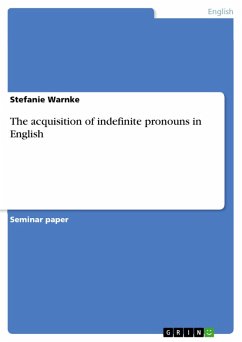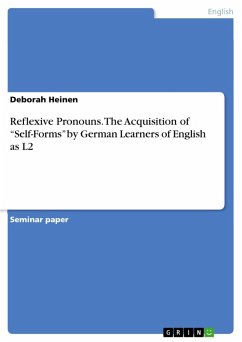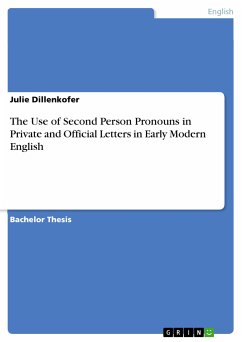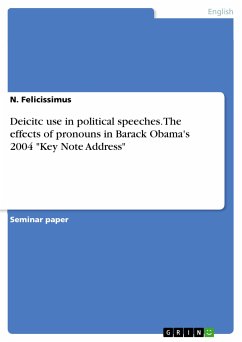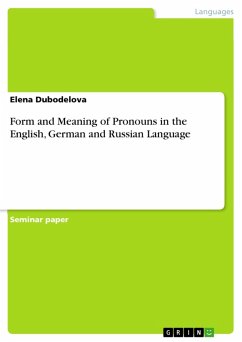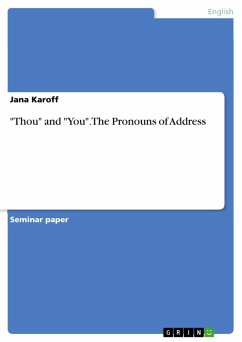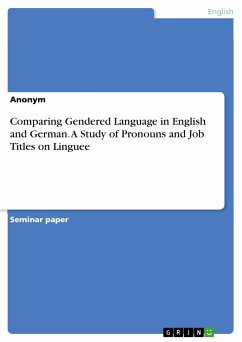Seminar paper from the year 2008 in the subject English Language and Literature Studies - Linguistics, grade: 1,3, http://www.uni-jena.de/ (Institut für Anglistik und Amerikanistik, Abteilung Sprache und Kognition), course: Syntactic Development, language: English, abstract: This term paper deals with the acquisition of English indefinite pronouns in First Language Learning. The centre of attention of my study will be the two major groups of indefinite pronouns that exist in English, specifically the compound indefinite pronouns and the indefinite of-pronouns which will be discussed in more detail in point 2 of this work. My first thesis to prove is that children acquire compound indefinite pro-nouns later than of-pronouns. Due to the fact that children generally acquire simple forms earlier than complex ones, one can say that the first indefinite pronouns that children acquire are indefinite of-pronouns for the reason that they are much easier than complex indefinite pronouns because they consist of one morpheme only. My second thesis to examine refers to an observation by QUIRK et al. (1992: 378). They say that in Standard American and British English, compound indefinite pronouns ending in -one, are generally more frequently used in adult speech because they are more elegant. According to Quirk's finding, I assume that indefinite pronouns ending in -one will be learned earlier than those ending in -body. Therefore, I will check this thesis with the help of data selected from the CHILDES database.
Dieser Download kann aus rechtlichen Gründen nur mit Rechnungsadresse in A, B, BG, CY, CZ, D, DK, EW, E, FIN, F, GR, HR, H, IRL, I, LT, L, LR, M, NL, PL, P, R, S, SLO, SK ausgeliefert werden.

